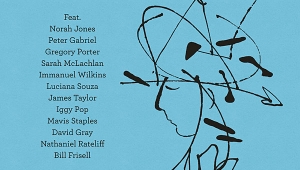| Columns Retired Columns & Blogs |
Amen brother! and nicely spoke Richard. I have always admired the arc of both John Hiatt and Ry Cooder's careers, not to mention their integrity as artists and musicians. Both of them together with the like of keltner and Lowe has the makings of a fine Creole. Bring the Family is one of those titles that is so familiar, I wore though the PVC groove and had to buy another copy. As for Got Rhythem, I can't recall ever spinning this one... from what you have said, it is time that I go record shopping for this one. Thanks!
Happy Listening!
 Ry Cooder: Get Rhythm
Ry Cooder: Get Rhythm




































